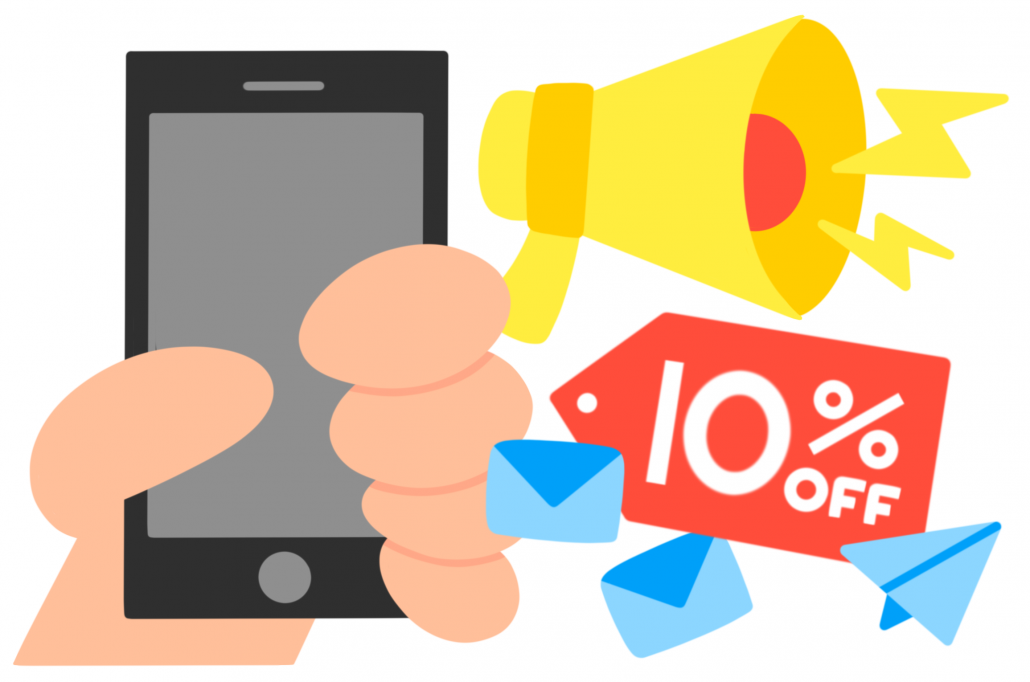Hyper exposure to advertisements exhausts students’ well-being
A quick tap through an Instagram story lineup will reveal what many of us already know and perhaps are trying to forget: Our phones are listening to us, and they really want to sell us something.
More truthfully, they want to sell us everything. According to a study from Baylor University, the average female college student is on her phone for 10 hours every day. Counting up all the minutes spent creating Spotify playlists, scrolling mindlessly through Instagram and watching YouTube videos before bed, it’s easy to see where half the day goes. (Male college students are not off the hook, by the way; they’re sinking eight hours into Twitter and email.)
Exactly how many advertisements are we seeing in those eight to 10 hours? Well, if we count the Snack Break jewelry ads, Magic Spoon, HelloFresh, Billie razors and that Culver City-based indie-folk band we’ve never heard of, that brings our grand total to around 4,000 to 10,000 daily advertisements. That’s a ton of marketing agencies vying for our attention, and small businesses are paying upwards of $10,000 per month for them to do it. Are they getting what they’re paying — a lot — for?
The short answer is kind of — sometimes. Most online advertisements fade to white noise for the average social media user, so much so that, even after long periods of exposure, some consumers find it difficult to recall even the name of a brand they’ve engaged with numerous times.
It’s a simple case of pruning, which sounds like a gross skin condition but is actually an evolutionary mechanism. It’s the reason we can’t discern our own scent from others’ or notice that the check engine light is on after driving around unbothered for a week or two. We’ve grown so accustomed to it that our brain decides it isn’t worth the energy to notify us of its presence. If there’s no likelihood of danger, there’s no sense in letting us know it’s even there.
Of the thousands of ads experienced every day, we consciously only notice about 100, leaving the vast majority completely abandoned like the waste of money and resources they are.
What exactly does this mean for advertising agencies? Not much: Advertising is a multi-billion dollar industry, and it’s only projected to grow. While a handful of companies are beginning to drift away from more traditional marketing techniques and shifting to more conscious, permission-based ones, the advertising industry is unlikely to change despite obvious overkill and consumer frustration. Digital salespeople are like Jordan Belfort and his army of Wall Street douche-canoes: They’re willing to throw their money around for the sake of letting you know that they have it.
The impact is felt by us, the unwitting youthful consumers. The purpose of any advertisement — even the Calm app ones — is to alter the mind of the audience. To accomplish that in an oversaturated market, advertisers often employ covert tactics.
Neuromarketing, for example, is a sales technique that sparks a sense of motivation. Think gym memberships and healthy food delivery services: There’s a reason royalty-free upbeat music is always playing in the background. According to the Journal of Neuroscience, Psychology, and Economics, “Regardless of the technique used, the stimuli that are presented outside of the conscious mind are formatted to manipulate the viewer by targeting one’s autonomic arousal or emotional state, making it biologically more difficult for the subject to reject the effects that the advertisement will have on them.”
The beauty industry employs this tactic all the time. For example: Every college student in Southern California needs this face wash because, without it, they won’t make any friends and life will be unbearably lonely. When we receive this information, it activates an unconscious emotional response, and because our brains prioritize emotion, we’re now unintentionally paying attention and feeling guilty as we do it.
Advertising is a vital component of a capitalist economy. It’s not going anywhere, and while it would be fabulous if wealthy corporations had a change of heart and retired their clandestine, coercive ad campaigns, it behooves us to not be too idealistic.
It’s up to us to consume responsibly. Cutting back on internet usage and installing an ad-blocker are manageable places to start. Our unconscious brain can’t absorb passive-aggressive sales pitches if they’re blocked from our homepage, and our cellphones can’t sell us anything if they’re turned off.


